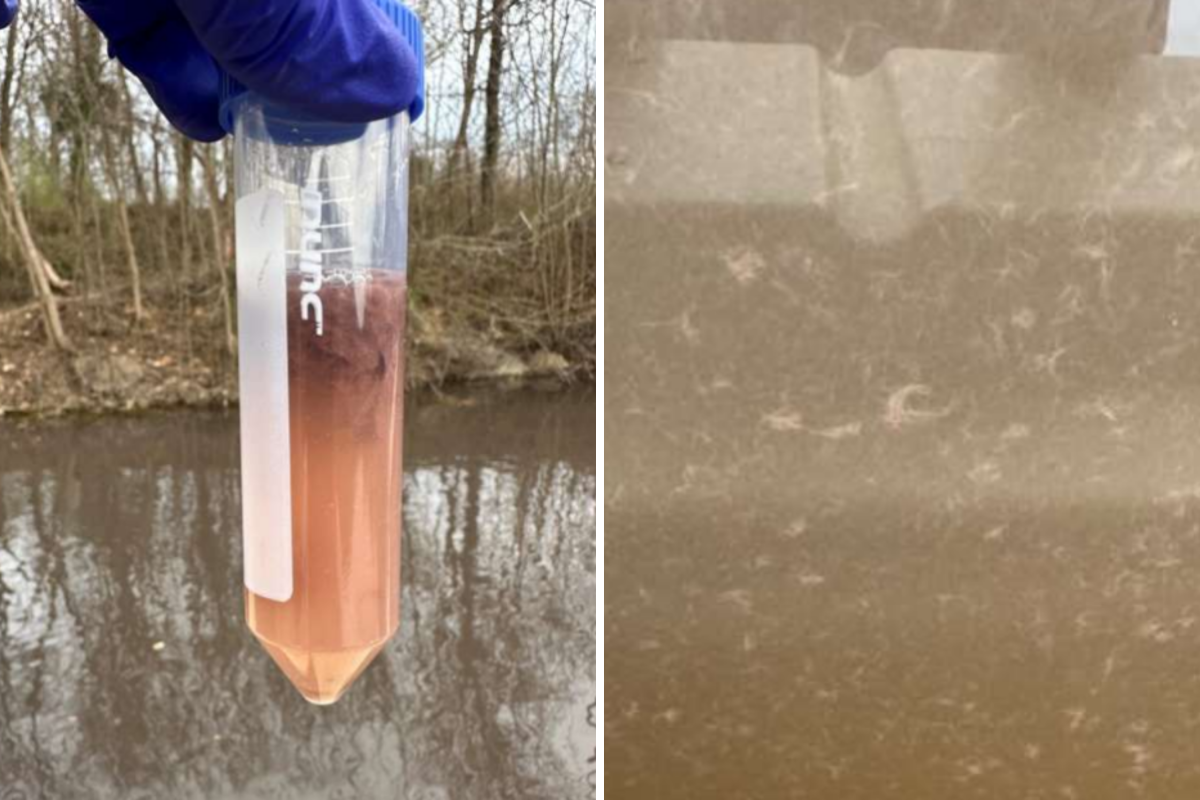A health warning has been issued for a lake in Tennessee after toxic pink algae was discovered by university students.
The Ijams Nature Center, which works with the Tennessee Department of Health and the Tennessee Department of Environment and Conservation, said in a statement that the bloom in Meads Quarry Lake is made up of a type of bacteria called Planktothrix rubescens—which can be toxic to humans and animals if there is high exposure.
The center is warning people not to swim in or ingest water from the lake.
The algae, which has a slight pink coloration, was discovered by University of Tennessee Knoxville (UTK) students that were taking water samples of the lake.
Further analysis by the nature center and the Tennessee Department of Health and the Tennessee Department of Environment and Conservation (TDEC) confirmed the presence of "high levels of microcystins" in the lake.
They will continue working to "address the situation" the center's statement read.
The Health Advisory level for this type of algae is 8 micrograms per liter. Samples, however, showed levels between 10 and 28 micrograms per liter.

"Until the Health Advisory is lifted, people and pets should not swim, wade, or come into contact with water, and should seek medical attention if they or their family members are experiencing illness after swimming or playing in the water," the statement from the nature center read. "Microcystin can put individuals at risk of various health effects, including upset stomach, vomiting, and diarrhea. Exposures to concentrations of cyanotoxins higher than the state's guideline values could potentially result in more serious illnesses, including liver or kidney damage."
Animals can also be vulnerable to this type of algae. Algae blooms in lakes is not uncommon, however, they are always of concern when they are found. This is because their presence appears to be increasing as climate change worsens.

"The rapid changes in temperature we've been experiencing this year caused the lake, which is more than 75 feet deep, to transition quickly," Ijams President/CEO Amber Parker said. "We expect that blooms of this particular cyanobacteria may become a more regular occurrence at this time of year due to climate change. Changes in aquatic systems such as this, extreme weather events, higher fire potentials, and earlier flowering of plants are all effects of increasingly warming temperatures. Thankfully, we expect this to be a short-lived event that will resolve itself before swimming season begins. Ijams is very fortunate to be able to collaborate with UTK faculty and state experts, who acted quickly to help us keep everyone safe. I'm thankful we have such knowledgeable and helpful scientific experts so close at hand."
Do you have a tip on a science story that Newsweek should be covering? Do you have a question about algae blooms? Let us know via science@newsweek.com.
Uncommon Knowledge
Newsweek is committed to challenging conventional wisdom and finding connections in the search for common ground.
Newsweek is committed to challenging conventional wisdom and finding connections in the search for common ground.
About the writer
Robyn White is a Newsweek Nature Reporter based in London, UK. Her focus is reporting on wildlife, science and the ... Read more
To read how Newsweek uses AI as a newsroom tool, Click here.








